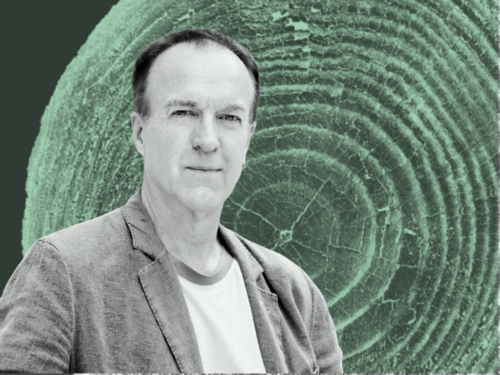
April 1, 2024
In a world that favors data, what value do the arts and humanities hold?
This question animates Rob Nixon’s approach to environmental justice in his upcoming Tanner Lectures on Human Values, “Ecology and Equity: Environmental Justice Revisited.” These lectures—organized by the Whitney Humanities Center, in coordination with President Salovey—examine science through the lens of environmental justice and the humanities, offering new ways to consider popular ideas of nature and our place in it.
Nixon, the Thomas A. and Currie C. Barron Family Professor in Humanities and the Environment at Princeton University, is the author of four books on postcolonial literature and environmental humanities. His 2011 book Slow Violence and the Environmentalism of the Poor won the American Book Award and remains a fundamental text in environmental literary studies.
Ahead of the Tanner Lectures on Wednesday, April 3 and Thursday, April 4, Nixon and Mikhail Moosa, a PhD student in History and 2022–23 Whitney Fellow in the Environmental Humanities, spoke over Zoom about the centrality of “violence” in his thinking on environmental justice, his attempt to historicize nature as suffused with structures and histories of power, and the twin rise of environmental science and neoliberalism.
In the environmental humanities, Slow Violence has taken on something of a canonical form. To what extent do you think “violence” remains a central category to your thinking on environmental justice?
Violence remains at the front and center of my thinking. My new project focuses on environmental martyrs, individuals who are targeted for assassination for their environmental activism. This phenomenon is most pronounced in forest struggles around the tropics. Martyrs experience the immediate brutality of their individual experience, yet they are acutely aware of the slow violence of environmental degradation.
The idea of slow violence has long been operative in my thinking on environmental justice. I first became interested in the natural world as a child when I developed a passion for ornithology. Growing up in the Eastern Cape of South Africa [a largely rural area], I became aware of the inequity of the outdoors under apartheid. I left South Africa, as a conscientious objector, for graduate school in the US. Studying under Edward Said at Columbia, I observed a scholar working across different platforms, reformulating his arguments to reach different audiences.